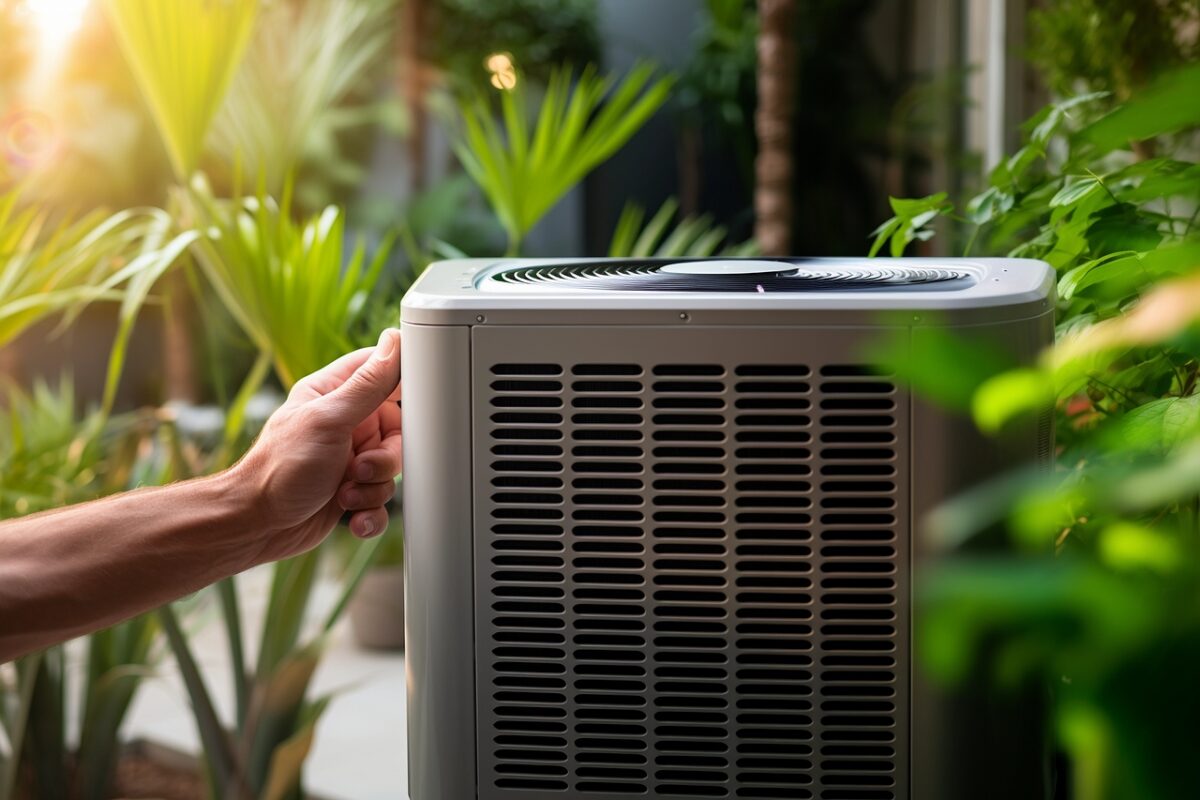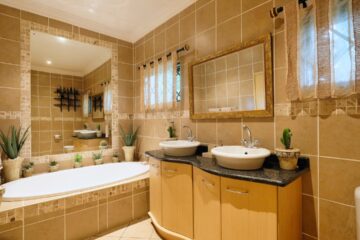In today’s world, most of us focus on air quality when we’re outdoors, but the truth is, the air inside our homes can be just as important, if not more important, for our health. The HVAC (Heating, Ventilation, and Air Conditioning) systems that control temperature and airflow in our living spaces have a significant impact on indoor air quality (IAQ). With the development of technology, the residential HVAC system is no longer just a temperature controller. Enhancing indoor air quality continues to be critical to the health of all in the home.
What is the importance of indoor air quality?
The purity and freshness of air within your house is referred to as indoor air quality. It is affected by things such as dust, allergens, bacteria, mold, volatile organic compounds (VOCs), and carbon dioxide. Outdoor air pollution is often a major concern, but many individuals may not realize that indoor air can be more polluted than the air outside. Specifically, according to the United States. The Environmental Protection Agency (EPA) states that indoor air can be 5 times more polluted than outdoor air.
This is a problem because we spend most of our day indoors, especially in our own homes. Regardless of what we are doing, whether we are working, relaxing, or sleeping, the air inside our homes can directly affect our health. Poor IAQ can result in a variety of problems, anywhere from trivial complaints such as headaches and eye irritation. This can lead to more serious issues like asthma, allergies, or chronic respiratory disease. People with pre-existing health conditions, such as asthma or heart disease, may experience worsening symptoms and more medical attention due to poor air quality.
How do HVAC systems affect indoor air quality?
The impact of HVAC systems on indoor air quality can be both positive and negative. These systems are not only for regulating temperature, but they also influence airflow and ventilation, which are important to provide a healthy indoor air environment. If these systems are not properly maintained or if they are using outdated technology, they may not be performing their job as efficiently as they should.
HVAC systems impact indoor air quality as follows:
Temperature Control and Ventilation
Temperature control and ventilation are the main tasks performed by an HVAC system among its many functions. If the HVAC system is not properly transporting fresh and stale air, pollutants such as carbon dioxide (CO2) may be released. Volatile organic compounds (VOCs) from cleaners and humidity can accumulate in the house. An unhealthy living environment can be caused by tight sealing of your home for energy efficiency.
Air Purification
Some HVAC systems today go beyond simple filtration and utilize air purifiers or ultraviolet (UV) technology to eliminate bacteria, viruses, and mold spores. UV lights integrated into the system can prevent pathogens from spreading throughout your house and provide an extra layer of protection for your family.
Air Filtration
Air filters are a primary defense against indoor pollutants. HVAC filters capture dust, dirt, and other airborne particles. Over time, these filters can become clogged, making them less effective at cleaning the air. In modern HVAC-based systems, air filters (such as HEPA filters) with much higher capture efficiency for smaller particles (pollen, pet dander, and mold spores) are commonly used. If you suffer from allergies or pets, using these higher-quality filters can make a significant impact on the air quality.
Humidity Control
Indoor air quality can be affected by the humidity level in the air. Excessive humidity may lead to mold growth, which can lead to respiratory problems. Insufficient humidity can lead to dry skin, sinus congestion, and respiratory organ trouble. The majority of current HVAC systems have humidifiers/dehumidifiers built in, which aid in maintaining a balanced humidity. By controlling air moisture, these systems can help prevent mold and provide air that is too dry.
Change Filters Regularly
Air filters are a crucial component of IAQ, but they often fall victim to being overlooked. It is important to check the filters monthly and replace them if necessary. If there are pets, allergies, or a lot of dust in your home, it may be necessary to replace the filters more frequently – every 30 to 45 days. The filter’s quality can be improved to a higher level as well, for example, by using a HEPA filter, to capture smaller particles that may be missed by a standard filter.
Improving indoor air quality with your HVAC system
Despite having a high-quality HVAC system, there are still a few things you can do to improve the air quality in your home. To ensure optimal performance of your HVAC system, there are some simple and practical steps you can take.
Ensure Proper Ventilation
The tight sealing of modern homes for energy efficiency can sometimes result in insufficient fresh air circulation. Make certain that your HVAC system is giving you enough ventilation by allowing fresh air to circulate throughout the house. If your system is not bringing in fresh air, consider installing a ventilation system that is designed to do so without compromising temperature control.
Install a Humidifier or Dehumidifier
Humidity can have a significant impact on your comfort and air quality. To prevent mold and reduce moisture in the air in humid climates, a dehumidifier can be used and prevent other allergies from appearing in the house. On the other hand, if you’re living in a super-dry area, a humidifier could be used to introduce humidity into the air, to avoid dry skin and irritation of the respiratory tract.
Add an Air Purification System
To get even more purified air, you can consider purchasing a whole-house air purifier that is compatible with your HVAC system. The use of HEPA filters, UV lamps, or ionizers by these devices results in the induction or elimination of pathogenic particles, bacteria, and viruses. This is particularly beneficial for individuals with allergies, asthma, or other respiratory ailments.
Schedule Regular HVAC Maintenance
Regular maintenance is crucial for maintaining the optimal performance of your HVAC system. A professional heating and cooling company will inspect and clean the system, checking for any issues that could impact air quality, such as clogged ducts, dirty filters, or faulty ventilation. Regular maintenance can help reduce system aging and save money in the future.
Final Thoughts
A well-maintained HVAC system does more than just keep your home comfortable — it plays a crucial role in ensuring that the air you breathe is clean and healthy. Modern HVAC systems can improve indoor air quality with features like advanced filtration, humidity control, and air purification. By maintaining your system and making a few upgrades. By improving the air quality in your home, you can decrease the chance of respiratory problems, allergies, and other health issues.




